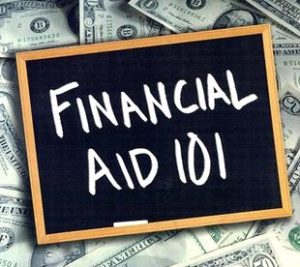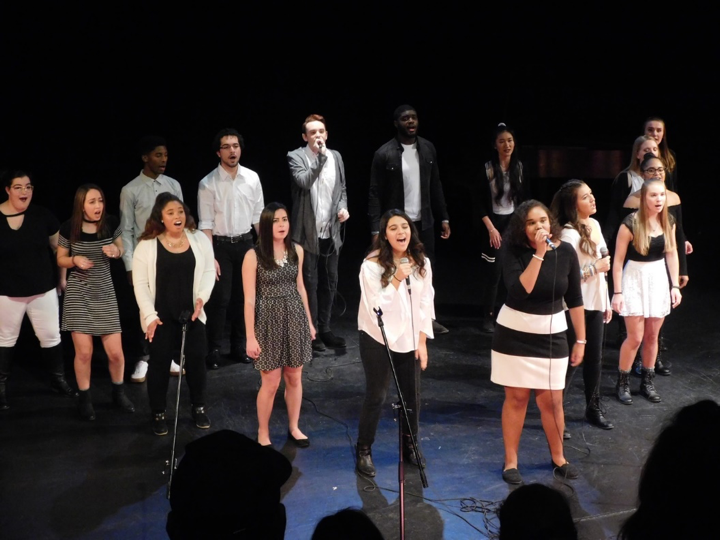Written by: Cassandra Figueroa
WEST LONG BRANCH, N.J. – What you eat and wear, your place of employment and what you do on the weekends, all involve money. Money is the backbone of our society; it is essential in everyday living. Some say, “Money isn’t everything,” but without it, where would you be? You need financial stability to survive; however, many individuals are struggling to get by financially and need the government’s support.
Financial assistance from the government is a hot issue, and one that is debated continuously in professional and social circles. Those who grow up poor seem vulnerable; they cannot advance financially because they are crippled by the state they are in currently. It is more difficult for those who do not have the proper means growing up to get jobs, schooling and even adequate health care. Their financial situation cripples them in many ways and it is unfair to say that they do not deserve the proper support needed to advance their lives.
The United States Census Bureau states that the “median household income in the United States in 2012 was $51,017.” Those who are living in low income families make significantly less than that. According to the Bureau, 46.5 million people are living at or below the poverty line (as of 2012).
Those living at or below this ‘line,’ earn around “$23,492 a year, for a family of four, or $11,720 for an individual,” according to CNNMoney report. The report added that the top-one percent of the population own 36 percent of all wealth in America. So, while the poor are struggling to get by, the richest people are doing just fine!

Financial support can be provided at the state or federal level. Generally, the federal government issues a sum of money to local governments for them to decide, on their own, how much should be distributed to programs such as welfare, food stamps, and scholarships for underprivileged students. Although the government does not just hand out money, they decide what is the most important and what deserves consideration.
The state of New Jersey has a program called Educational Opportunity Funding [EOF], which is one example of financial assistance for those who are living under the poverty line, according to the New Jersey Office of the Secretary of Higher Education. This program gives students who would not normally have the means to attend college the ability, through monetary grants, to attend colleges that execute this program. Monmouth University supports the EOF program.
Students must not only need the program financially, but they must also prove they have the academic ability and personality to receive the support by going through multiple interviews and completing a summer semester with proficient grades at the university. They must do so to ensure that the financial assistance is being given to those who not only need it, but also want it.
Monmouth University’s EOF Director, Colleen Johnson, said, “Low income families usually stay in an unchanging lifestyle. It is very difficult to move from a low economic situation without the opportunity of a higher education.” She explained how “an EOF scholarship offers hope and change” to those students who are living in poverty.

Johnson is a successful working woman in society who grew up in poverty. She was able to reverse her financial state with help from the EOF program.
“We didn’t own a car, a washing machine, a phone or even the proper clothes to go to school. The money my brothers and sisters earned when we were old enough to work went to keeping food on the table and, usually, the electricity on,” Johnson said. “There was no money for college. It was a hopeless situation,” she added.
Johnson explained how the EOF program helped her get out of poverty and reach her full potential. Without it, she would have been crippled by the financial state her family was already in.
EOF is only one of the programs which assist struggling families. A senior at Monmouth University majoring in political science, who wishes not to be named, explained how her family was forced to receive assistance from the government when her parents lost their jobs. “After the recession, my family was unable to afford food without food stamps from the government… [Government assistance] does make an impact on people because my family would not have been able to afford all the essentials necessary (to live),” the student said.
Families similar to this student’s are in need of support; however, sometimes government assistance has a negative connotation because, like with anything else, some people may abuse the system.
Christopher Orlando, senior Political Science major, said, “These programs are absolutely necessary, but I work at a grocery store and I see examples of abuses of these programs as well. My hope would be that those who need the help seek it but do not abuse it.”
Abuse happens in all types of programs – from nonprofit fund accountability to corporate bailouts. It is not right to take away the programs from the people who need it, though; more restrictions and oversight must be implemented to reduce any sorts of abuse.
Children who grow up in poor families may go to school with no lunch money – how does one expect a child to concentrate on his math test with his/her stomach growling? Parents who are living in poverty cannot find jobs – how will they get to work when they cannot afford a car? Friends are skipping out on your birthday party – how could they attend when they are ashamed because they cannot afford a present? These individuals miss out on many wholesome life experiences. They miss out on food, opportunities and fun because they do not have the money.
When you think of the word poverty, most of the time, the image that comes to mind is a small child with no shoes, living on the streets, or a bum on the corner drinking something in a brown paper bag. That is not always the face of poverty, though. Sometimes it is more subtle; sometimes it is a friend or a neighbor or a family member who is hiding their struggle.
You may be thinking “well, it is their fault they are poor.” However, that is not always the case.
Jesse *****, a senior at Monmouth University, grew up in a family that bore the burden of needing financial assistance from the government. His family was living on a very low income and there was nothing Jesse brought upon himself that placed him or his family in the difficult situation.
“We [his family] always struggled to have the luxuries that others may have seen as everyday amenities, such as dining out, having the latest fashion, and even having sufficient groceries for the week,” Jesse said. “When my mother passed away, it made it even more difficult for my father to support me and my brothers. He worked three jobs. Without financial assistance I may not have been able to go to a four year university, and, more importantly, my father did not have to bear the burden of another loan for education,” Jesse added.

Looking at all angles of a situation helps a society understand poverty more fully. Was it pure laziness or a disability that caused them to get fired for missing too many days of work? Are they dumb or was it too difficult to go to college without enough loans? You decide. Oh, and try and keep compassion in mind.
To eliminate discrepancies in the way in which people live, we need to assist all Americans so that everyone will be given equal opportunities to thrive. Poverty creates a ripple effect, one that forces those who grow up in poverty to stay in it, unless they are ushered in the right direction. Like Johnson, these individuals can prosper into successful adults with the help of financial assistance.
We need to support programs such as welfare, food stamps and financial aid. We need to elect officials that want to push our society to new heights. We need to care for every individual in society. We need, to help the poor.





If we paid people a living wage, they could get out of poverty.
Duh.
Walmart is the number one private employer in the US. The four Walmart heirs (translation didn’t do anything to earn their net worth) are worth as much as the bottom 40 % of Americans.
They are from The Lucky Sperm Club.
Walmart pays poverty wages. I know. I prepare their employees’ taxes.
Their employees are suffocating.
Here is the solution to this despair: (1) enact an Improved and Expanded Medicare for All (truly universal FREE health care like no less than 38 other countries -my god even North Korea has universal health care), (2) pay a LIVING wage, (3) fully fund all public education including universities ( what the Federal government loans to students, it could just give to the schools and – Tah Dah! – college would be free, (4) forgive all student loan debt to date ( take the money from the TRILLIONS we spend on war and the war machine, (5) nationalize all utilities (already been done in Nebraska with tremendous success for decades), (6) institute public banks (already been done in North Dakota with a century of success).
This is not rocket science.
It is humane and common sense.